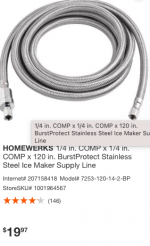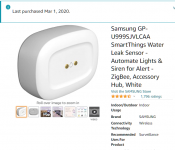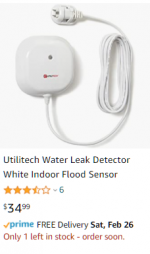We had the unfortunate experience of a flooded basement due to a 1/4" plastic pipe compression fitting (barb and olive type) that came free of an inline filter for our refrigerator. Accumulated over 2" of water in one area in less than 3 hours. All cleaned up and insurance paying for everything, but had an interesting conversation with one of the disaster mitigation techs that was in and out of our house while drying the basement. He told me leaking refrigerator water lines are a major source of business for them. Huge actually.
My feed line was mostly flared copper with a short segment of plastic that got retrofitted when we replaced all our galvanized pipe with PEX. At time of install I think copper or poly were the only choices. Have now replaced everything with braided stainless 1/4" compression fitting lines similar to what is used on sinks. These are way more stout with robust connection nuts and additionally found one that incorporates an automatic shutoff should a high flow rate be detected.
Available widely, but here is a 10' with shutoff valve at HD for $20-ish in case anyone wants to fix-it-before-it-breaks:https://www.homedepot.com/p/HOMEWER...-Maker-Supply-Line-7253-120-14-2-BP/207158418
View attachment 1
My feed line was mostly flared copper with a short segment of plastic that got retrofitted when we replaced all our galvanized pipe with PEX. At time of install I think copper or poly were the only choices. Have now replaced everything with braided stainless 1/4" compression fitting lines similar to what is used on sinks. These are way more stout with robust connection nuts and additionally found one that incorporates an automatic shutoff should a high flow rate be detected.
Available widely, but here is a 10' with shutoff valve at HD for $20-ish in case anyone wants to fix-it-before-it-breaks:https://www.homedepot.com/p/HOMEWER...-Maker-Supply-Line-7253-120-14-2-BP/207158418
View attachment 1





